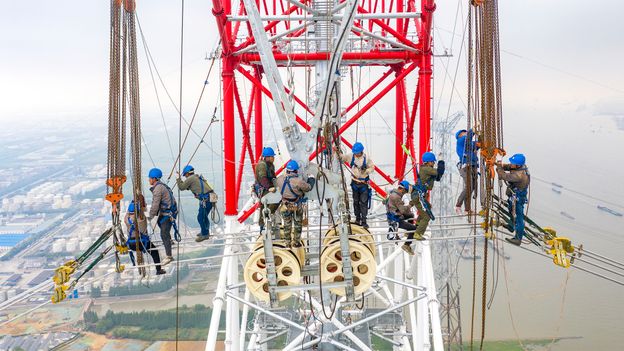- cross-posted to:
- [email protected]
- cross-posted to:
- [email protected]
Summary
China leads the world in ultra-high-voltage (UHV) power transmission, with 48,000km of UHV lines connecting remote renewable energy sources, like wind, solar, and hydropower, to urban centers.
UHV lines minimize energy loss over long distances, earning them the nickname “bullet trains for power.”
Initially designed for coal and hydro, these lines now support China’s renewable energy expansion.
However, challenges remain, including high costs, dependence on coal for stability, and limited local integration.
Globally, countries like Brazil and India are adopting UHV, but regulatory and cost barriers hinder broader deployment, especially in the U.S.



They seem to be making better progress than many other countries on renewables.
Hopefully they’ll transition off coal and onto battery infrastructure as renewables increase.
And when (or if) they do, I’ll say they’re smashing it. Right now, they’re just not as bad as some of their competitors.
Today they’re smashing it at the rate of installation per year.